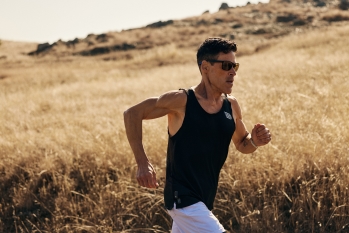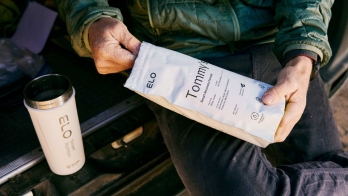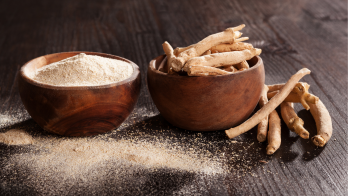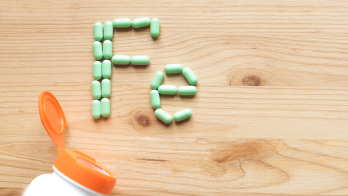The best rock climbing supplements for performance and recovery
If you want to climb to the next level, supplementation may give you the edge you need to reach new heights. Here are the best rock climbing supplements that science shows may help improve your climbing performance and recovery and give you an arm up on your competition.

Navigating the world of sports supplements can be daunting, especially for climbers seeking to optimize their performance and recovery. With an overwhelming array of performance-enhancing supplements and recovery products available, making informed decisions based on scientific evidence can significantly impact your success. In this guide, we’ll explain why nutrition is so important and look at the science behind the most effective supplements for rock climbers to help you make the right choices to elevate your climbing journey.
Why is nutrition for climbers important?
Rock climbing is a sport that places high demands on both the body and mind. It requires strength, endurance, agility, and balance, all while maintaining intense concentration. The relentless pulling, pushing, gripping, and balancing movements deplete muscle glycogen (energy) stores and cause microscopic tears in muscle tissue. Simultaneously, sweat depletes fluids and electrolytes, which are essential for temperature regulation, muscle function, and mental alertness [ 1 2
Strenuous exercise like climbing also triggers an inflammatory response and temporarily suppresses the immune system, making climbers more susceptible to soreness, injury, and illness [ 3 4 1 5
A well-structured nutrition plan and recovery regimen can help you elevate your climbing performance, maintain mental focus, reduce training-related fatigue, and even prevent or overcome injuries—all of which may contribute to improved climbing performance and faster recovery [ 6

Meet Tommy Caldwell, professional rock climber and Elo Health ambassador
Tommy Caldwell is a renowned rock climber who has etched his name among the sport's legends. His groundbreaking ascent of The Dawn Wall on El Capitan, a feat that took three weeks and pushed the boundaries of human endurance, is a testament to his unwavering dedication and exceptional skills.
Caldwell's approach to nutrition mirrors his climbing philosophy, which requires precision, balance, and fueling the body to perform at its peak. By prioritizing good nutrition through his diet, Smart Protein Smart Gummies
Learn more about Tommy and how Elo is helping him climb to new heights here.

Best supplements for climbers
Scaling rock walls and conquering challenging routes demands strength, endurance, and focus. Nourishing your body with the proper nutrition will help you climb to the top. While a balanced diet provides most essential nutrients, certain supplements can help you reach new heights and support your post-climb recovery.
Here are the best supplements for rock climbers, including how they work and which ones you may want to include in your nutrition plan.
Carbohydrates
Carbohydrates
Given this, the availability of carbohydrates in the body can profoundly affect your energy levels, endurance, performance, and even recovery. Not having enough carbs on board before a climb can negatively impact your body composition, physical performance, and recovery — whereas increased carbohydrate intake before, during, and after climbing can have significant performance and recovery benefits [ 7
Studies show that consuming 1-1.2 g/kg/h during the first 4-6 hours of recovery is ideal for repleting carbohydrate stores [ 5 6
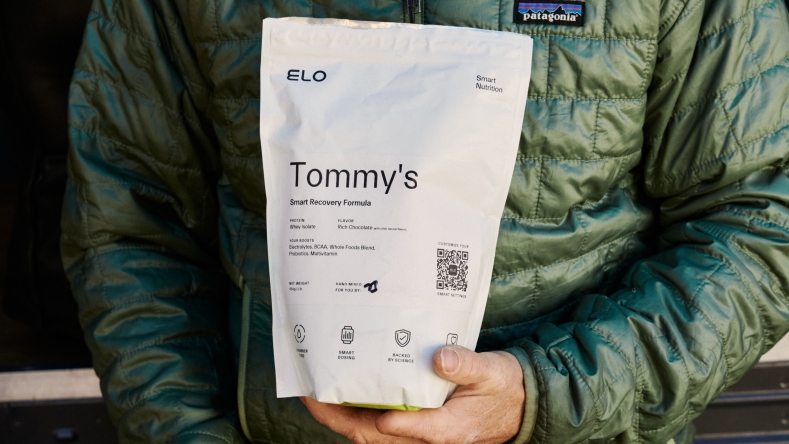
Protein powder with branched-chain amino acids (BCAAs)
When it comes to climbing recovery, protein intake plays a key role in boosting glycogen synthesis and enhancing muscle repair and recovery [ 8
Experts recommend consuming 20-40 g of high-quality (complete) protein within two hours of exercise, which has been shown to stimulate robust increases in muscle protein synthesis that can benefit both recovery and future performance [ 8
Furthermore, consuming at least 3 grams of the amino acid leucine, a branched-chain amino acid 33 34
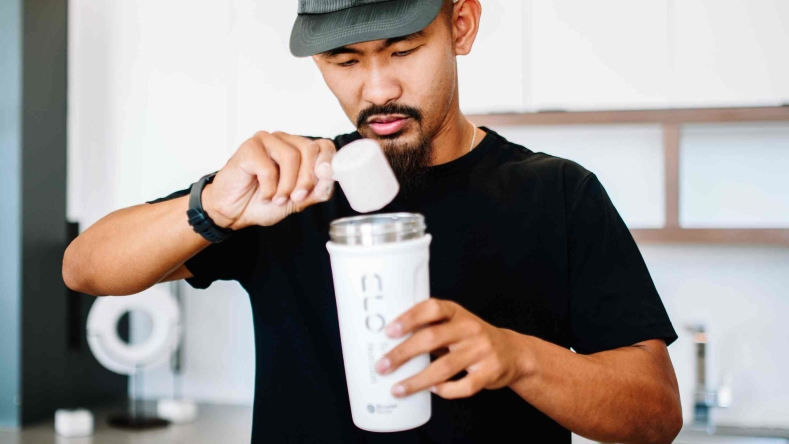
While you can get protein from food sources, high-quality protein supplements for climbers, like Elo Smart Protein
Collagen
Collagen 9 10
Research shows that taking 2.5–15 g of hydrolyzed collagen peptides/day may be safe and effective. For joint health, 10 g/day of hydrolyzed collagen or 10-40 mg/day of undenatured type II collagen may benefit climbing-related joint pain in active adults [ 9 10 11 12 13
Electrolyte-enhanced fluids
Adequate fluid and electrolyte intake is critical for nutrient transport, joint lubrication, muscle function, fluid balance, cognition, and alertness. Consuming sufficient fluid before, during, and after a climb will also help regulate your body temperature, reduce cardiovascular strain, and improve your post-climb recovery [ 6
Climbers commonly use sports drinks during and after longer climbs as they contain a combination of water for hydration, carbohydrates (glucose) for quick-burning fuel, and electrolytes to replace those lost in sweat.
Multivitamin
While it may seem basic, adding a multivitamin
Vitamin D: Essential for indoor climbers who may need more sun exposure.
Vitamin D
is crucial for bone health as it helps with calcium absorption and muscle function.Magnesium: Can aid muscle function and prevent cramping, a common issue for climbers.
Magnesium
also supports bone health by assisting vitamin D absorption.Calcium:
Essential for bone strength
, which is critical given the impact and stress placed on bones during climbing, especially considering the risk of falls and the pressure put on bones during climbing.Choline: Contributes to cognitive function, including memory, mood, and muscle control. This is particularly important in climbing, where focus, decision-making, and problem-solving are key.
B vitamins: The B vitamins, which include Thiamin, Riboflavin, Niacin, Pantothenic Acid, Vitamin B6, Biotin, and
Vitamin B12
, are essential for energy production and nerve health to sustain mental clarity.Vitamin E: Supports skin health and may be beneficial for climbers to help repair and maintain tough skin on the hands.
Vitamin C and Zinc:
Support the immune system
andtissue repair
, including skin and tendons.
Functional mushrooms
Functional or medicinal mushrooms
For example, Lion’s mane may be beneficial for mental clarity with its positive impact on cognition, memory, and concentration [ 14 15 16 17
Cordyceps sinensis (also known as Cordyceps) may boost energy, help enhance blood and oxygen flow, increase ATP (energy) production, and improve post-climb recovery [ 18 19 35 36
Turmeric (Curcumin)
Turmeric 20 21
Research indicates that 150-1,500 mg of turmeric daily may improve post-exercise recovery and reduce muscle soreness. One study found that ingestion before exercise could attenuate acute inflammation, and after exercise, it could reduce muscle damage and facilitate faster recovery [ 20 22 23
Combining turmeric with black pepper or taking supplements that contain a form of black pepper (such as the form found in Elo Smart Gummies 20
Coenzyme Q10
CoQ10 is involved in cell energy production and can support muscle function and endurance. It may also benefit recovery by reducing inflammation and fatigue [ 24 25
A standard dose for CoQ10 ranges from 90-200 mg, taken once daily with a meal for optimal absorption [ 26
Tart cherry
Tart cherry 27 28
Moreover, tart cherries can be a helpful addition to a sleep-promoting regimen as they are a natural source of melatonin, a hormone that regulates the sleep-wake cycle [ 29
While the timing and dosage can vary widely, most studies have found that consuming 8-12 oz of tart cherry juice extract twice daily can promote recovery [ 28
Eleuthero (Siberian Ginseng)
Eleuthero, also known as Siberian Ginseng or Eleutherococcus senticosus, may benefit climbers by enhancing endurance, reducing fatigue, and promoting mental focus during climbs.
While study results are mixed, some evidence suggests that Eleuthero can improve physical performance during periods of high-intensity exercise [ 30 31
A standard dose for Eleuthero ranges from 300-1,200 mg/day, though dosages in the 2-4 g/day range and more have been traditionally recommended [ 30
Silica
Climbers rely heavily on their tendons and ligaments for support during climbs, and silica may help reduce the risk of injuries by enhancing connective tissue strength, promoting joint health, and contributing to stronger bones [ 32
Additionally, silica's role in collagen formation can support recovery from climbing-related injuries and reduce inflammation, aiding overall performance.
Climb to new heights with Elo
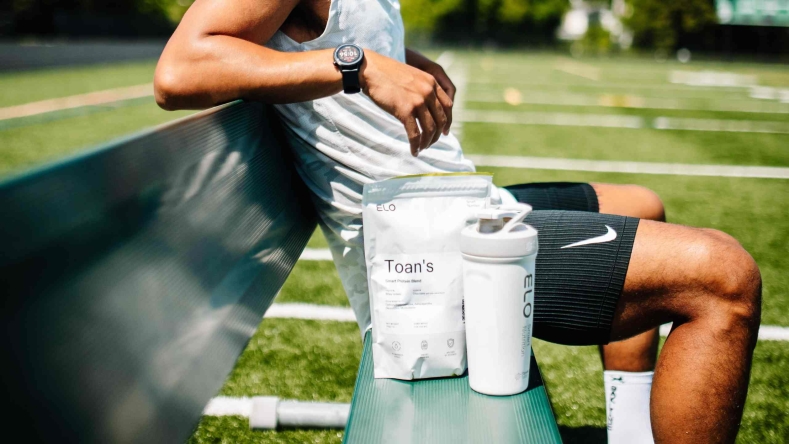
Elo Smart Protein
Elo Smart Protein
Some nutrient boosts that can help level up your climbing performance include:
Carbohydrates: Choose between Highly Branched Cyclic Dextrin, a rapid carb for glycogen replenishment and sustained endurance, or Oat starch, a slow carb for sustained energy during muscle recovery.
Electrolytes: Add sodium, magnesium, and potassium to your
Smart Protein
blend to help replenish lost electrolytes after a climbCollagen: To support joint health and aid recovery
Functional mushroom blend: To offset inflammation, improve circulation and energy production, and support cognitive function
Turmeric: To reduce inflammation and support joint health and recovery
Learn more Smart Protein

Elo Smart Gummies for Climbers
Elo’s Smart Gummies
An Elo Smart Gummy
Coenzyme Q10: To reduce inflammation, alleviate fatigue, and support energy production and recovery
Turmeric (HydroCurc & Black Pepper Extract): To reduce inflammation and support joint health and recovery
Tart cherry: To support performance, reduce pain, soreness, and inflammation, and accelerate strength recovery after climbing
Eleuthero: To support endurance, reduce fatigue, and promote mental focus
Vitamin D: For bone health, muscle function, and immunity
Cordyceps: To support energy production, oxygen utilization, and improve post-climb recovery.
Silica: May enhance connective tissue strength, promoting joint health, and contributing to stronger bones
Other articles you might like
Why carbs are important (especially for athletes)
The ultimate guide to post-workout nutrition
Elo Smart Gummies: How it works
Summary
If you’re a rock climber looking to level up your performance, your nutrition must be as solid as the next rock you’re reaching for. In addition to eating a balanced, nutritious diet, certain supplements can help you reach new heights. Elo’s Smart Protein Smart Gummies
Disclaimer: The text, images, videos, and other media on this page are provided for informational purposes only and are not intended to treat, diagnose, or replace personalized medical care.
Key takeaways
Protein powder and collagen can help aid in muscle repair and recovery, while carbohydrates provide essential energy during intense climbing sessions.
Electrolyte-enhanced fluids help maintain hydration and electrolyte balance, while a multivitamin can help bridge nutritional gaps in your diet.
Additional supplements, such as turmeric, tart cherry, Eleuthero, silica, and omega-3s, can provide specific benefits for climbers, such as reducing inflammation, enhancing endurance, and promoting joint health.
Elo Health
can help you optimize your climbing nutrition withSmart Protein
,Smart Gummies
, and 1:1 dietitian support.
References
Murray, B., & Rosenbloom, C. (2018). Fundamentals of glycogen metabolism for coaches and athletes. Nutrition reviews, 76(4), 243–259.
https://doi.org/10.1093/nutrit/nuy001
Popkin, B. M., D'Anci, K. E., & Rosenberg, I. H. (2010). Water, hydration, and health. Nutrition reviews, 68(8), 439–458.
https://doi.org/10.1111/j.1753-4887.2010.00304.x
Cerqueira, R., Marinho, D. A., Neiva, H. P., & Lourenço, O. (2020). Inflammatory Effects of High and Moderate Intensity Exercise—A Systematic Review. Frontiers in Physiology, 10.
https://doi.org/10.3389/fphys.2019.01550
Gleeson, M., Nieman, D. C., & Pedersen, B. K. (2004). Exercise, nutrition and immune function. Journal of Sports Sciences, 22(1), 115–125.
https://doi.org/10.1080/0264041031000140590
Kerksick, C., Harvey, T., Stout, J., Campbell, B., Wilborn, C., Kreider, R., Kalman, D., Ziegenfuss, T., Lopez, H., Landis, J., Ivy, J. L., & Antonio, J. (2008). International Society of Sports Nutrition position stand: Nutrient timing. Journal of the International Society of Sports Nutrition, 5(1).
https://doi.org/10.1186/1550-2783-5-17
Kerksick, C. M., Wilborn, C. D., Roberts, M. D., Smith-Ryan, A., Kleiner, S. M., Jäger, R., Collins, R., Cooke, M., Davis, J. N., Galvan, E., Greenwood, M., Lowery, L. M., Wildman, R., Antonio, J., & Kreider, R. B. (2018). ISSN exercise & sports nutrition review update: research & recommendations. Journal of the International Society of Sports Nutrition, 15(1), 38.
https://doi.org/10.1186/s12970-018-0242-y
Thomas, D., Erdman, K. A., & Burke, L. M. (2016). Position of the Academy of Nutrition and Dietetics, Dietitians of Canada, and the American College of Sports Medicine: Nutrition and Athletic Performance. Journal of the Academy of Nutrition and Dietetics, 116(3), 501–528.
https://doi.org/10.1016/j.jand.2015.12.006
Stark, M., Lukaszuk, J., Prawitz, A., & Salacinski, A. (2012). Protein timing and its effects on muscular hypertrophy and strength in individuals engaged in weight-training. Journal of the International Society of Sports Nutrition, 9(1).
https://doi.org/10.1186/1550-2783-9-54
García-Coronado, J. M., Martínez-Olvera, L., Elizondo-Omaña, R. E., Acosta-Olivo, C. A., Vilchez-Cavazos, F., Simental-Mendía, L. E., & Simental-Mendía, M. (2019). Effect of collagen supplementation on osteoarthritis symptoms: a meta-analysis of randomized placebo-controlled trials. International orthopaedics, 43(3), 531–538.
https://doi.org/10.1007/s00264-018-4211-5
Clark, K. L., Sebastianelli, W., Flechsenhar, K. R., Aukermann, D. F., Meza, F., Millard, R. L., Deitch, J. R., Sherbondy, P. S., & Albert, A. (2008). 24-Week study on the use of collagen hydrolysate as a dietary supplement in athletes with activity-related joint pain. Current medical research and opinion, 24(5), 1485–1496.
https://doi.org/10.1185/030079908x291967
Lugo, J. P., Saiyed, Z. M., & Lane, N. E. (2016). Efficacy and tolerability of an undenatured type II collagen supplement in modulating knee osteoarthritis symptoms: a multicenter randomized, double-blind, placebo-controlled study. Nutrition journal, 15, 14.
https://doi.org/10.1186/s12937-016-0130-8
Zdzieblik, D., Oesser, S., Baumstark, M. W., Gollhofer, A., & König, D. (2015). Collagen peptide supplementation in combination with resistance training improves body composition and increases muscle strength in elderly sarcopenic men: a randomised controlled trial. The British journal of nutrition, 114(8), 1237–1245.
https://doi.org/10.1017/S0007114515002810
Oertzen-Hagemann, V., Kirmse, M., Eggers, B., Pfeiffer, K., Marcus, K., de Marées, M., & Platen, P. (2019). Effects of 12 Weeks of Hypertrophy Resistance Exercise Training Combined with Collagen Peptide Supplementation on the Skeletal Muscle Proteome in Recreationally Active Men. Nutrients, 11(5), 1072.
https://doi.org/10.3390/nu11051072
Mori, K., Inatomi, S., Ouchi, K., Azumi, Y., & Tuchida, T. (2009). Improving effects of the mushroom Yamabushitake (Hericium erinaceus) on mild cognitive impairment: a double-blind placebo-controlled clinical trial. Phytotherapy Research, 23(3), 367–372.
https://doi.org/10.1002/ptr.2634
Sabaratnam, V., Kah-Hui, W., Naidu, M., & Rosie David, P. (2013). Neuronal health - can culinary and medicinal mushrooms help?. Journal of traditional and complementary medicine, 3(1), 62–68.
https://doi.org/10.4103/2225-4110.106549
Najafzadeh, M., Reynolds, P. D., Baumgartner, A., Jerwood, D., & Anderson, D. (2007). Chaga mushroom extract inhibits oxidative DNA damage in lymphocytes of patients with inflammatory bowel disease. BioFactors (Oxford, England), 31(3-4), 191–200.
https://doi.org/10.1002/biof.5520310306
Javed, S., Mitchell, K., Sidsworth, D., Sellers, S. L., Reutens-Hernandez, J., Massicotte, H. B., Egger, K. N., Lee, C. H., & Payne, G. W. (2019). Inonotus obliquus attenuates histamine-induced microvascular inflammation. PloS one, 14(8), e0220776.
https://doi.org/10.1371/journal.pone.0220776
Tuli, H. S., Sandhu, S. S., & Sharma, A. K. (2013). Pharmacological and therapeutic potential of cordyceps with special reference to Cordycepin. 3 Biotech, 4(1), 1–12.
https://doi.org/10.1007/s13205-013-0121-9
Chen, C.-Y., Hou, C.-W., Bernard, J. R., Chen, C.-C., Hung, T.-C., Cheng, L.-L., Liao, Y.-H., & Kuo, C.-H. (2014). Rhodiola crenulata- and Cordyceps sinensis-Based Supplement Boosts Aerobic Exercise Performance after Short-Term High Altitude Training. High Altitude Medicine & Biology, 15(3), 371–379.
https://doi.org/10.1089/ham.2013.1114
Yoon, W. Y., Lee, K., & Kim, J. (2020). Curcumin supplementation and delayed onset muscle soreness (DOMS): effects, mechanisms, and practical considerations. Physical activity and nutrition, 24(3), 39–43.
https://doi.org/10.20463/pan.2020.0020
Small, G. W., Siddarth, P., Li, Z., Miller, K. J., Ercoli, L., Emerson, N. D., Martinez, J., Wong, K. P., Liu, J., Merrill, D. A., Chen, S. T., Henning, S. M., Satyamurthy, N., Huang, S. C., Heber, D., & Barrio, J. R. (2018). Memory and Brain Amyloid and Tau Effects of a Bioavailable Form of Curcumin in Non-Demented Adults: A Double-Blind, Placebo-Controlled 18-Month Trial. The American journal of geriatric psychiatry : official journal of the American Association for Geriatric Psychiatry, 26(3), 266–277.
https://doi.org/10.1016/j.jagp.2017.10.010
Tanabe, Y., Chino, K., Ohnishi, T., Ozawa, H., Sagayama, H., Maeda, S., & Takahashi, H. (2019). Effects of oral curcumin ingested before or after eccentric exercise on markers of muscle damage and inflammation. Scandinavian journal of medicine & science in sports, 29(4), 524–534.
https://doi.org/10.1111/sms.13373
Fernández-Lázaro, D., Mielgo-Ayuso, J., Seco Calvo, J., Córdova Martínez, A., Caballero García, A., & Fernandez-Lazaro, C. I. (2020). Modulation of Exercise-Induced Muscle Damage, Inflammation, and Oxidative Markers by Curcumin Supplementation in a Physically Active Population: A Systematic Review. Nutrients, 12(2), 501.
https://doi.org/10.3390/nu12020501
Tsai, I. C., Hsu, C. W., Chang, C. H., Tseng, P. T., & Chang, K. V. (2022). Effectiveness of Coenzyme Q10 Supplementation for Reducing Fatigue: A Systematic Review and Meta-Analysis of Randomized Controlled Trials. Frontiers in pharmacology, 13, 883251.
https://doi.org/10.3389/fphar.2022.883251
Drobnic, F., Lizarraga, M. A., Caballero-García, A., & Cordova, A. (2022). Coenzyme Q10 Supplementation and Its Impact on Exercise and Sport Performance in Humans: A Recovery or a Performance-Enhancing Molecule?. Nutrients, 14(9), 1811.
https://doi.org/10.3390/nu14091811
Patel, K., MPH, MBA. (2023b, February 1). Coenzyme Q10. Examine.com. Retrieved November 22, 2023, from
https://examine.com/supplements/coenzyme-q10/
Gao, R., & Chilibeck, P. D. (2020). Effect of Tart Cherry Concentrate on Endurance Exercise Performance: A Meta-analysis. Journal of the American College of Nutrition, 39(7), 657–664.
https://doi.org/10.1080/07315724.2020.1713246
Vitale, K., Hüglin, S., & Broad, E. (2017). Tart Cherry Juice in Athletes. Current Sports Medicine Reports, 16(4), 230–239.
https://doi.org/10.1249/jsr.0000000000000385
Howatson, G., Bell, P. G., Tallent, J., Middleton, B., McHugh, M. P., & Ellis, J. (2012). Effect of tart cherry juice (Prunus cerasus) on melatonin levels and enhanced sleep quality. European journal of nutrition, 51(8), 909–916.
https://doi.org/10.1007/s00394-011-0263-7
Patel, K. (2022, September 28). Eleuthero. Examine.
https://examine.com/supplements/eleuthero/
Bokelmann, J. M. (2022). Eleuthero/Siberian ginseng (Eleutherococcus senticosus/Acanthopanax senticosus). In Elsevier eBooks (pp. 327–333).
https://doi.org/10.1016/b978-0-323-84676-9.00043-x
Martin K. R. (2007). The chemistry of silica and its potential health benefits. The journal of nutrition, health & aging, 11(2), 94–97.
https://pubmed.ncbi.nlm.nih.gov/17435951/
VanDusseldorp, T. A., Escobar, K. A., Johnson, K. E., Stratton, M. T., Moriarty, T., Cole, N., McCormick, J. J., Kerksick, C. M., Vaughan, R. A., Dokładny, K., Kravitz, L., & Mermier, C. M. (2018). Effect of Branched-Chain amino acid supplementation on recovery following acute eccentric exercise. Nutrients, 10(10), 1389.
https://doi.org/10.3390/nu10101389
Gervasi, M., Sisti, D., Amatori, S., Zeppa, S. D., Annibalini, G., Piccoli, G., Vallorani, L., Benelli, P., Rocchi, M., Barbieri, E., Calavalle, A. R., Agostini, D., Fimognari, C., Stocchi, V., & Sestili, P. (2020). Effects of a commercially available branched-chain amino acid-alanine-carbohydrate-based sports supplement on perceived exertion and performance in high intensity endurance cycling tests. Journal of the International Society of Sports Nutrition, 17(1).
https://doi.org/10.1186/s12970-020-0337-0
Hirsch, K. R., Smith-Ryan, A. E., Roelofs, E. J., Trexler, E. T., & Mock, M. G. (2017). Cordyceps militaris Improves Tolerance to High-Intensity Exercise After Acute and Chronic Supplementation. Journal of dietary supplements, 14(1), 42–53.
https://doi.org/10.1080/19390211.2016.1203386
Chen, S., Li, Z., Krochmal, R., Abrazado, M., Kim, W., & Cooper, C. B. (2010). Effect of Cs-4 (Cordyceps sinensis) on exercise performance in healthy older subjects: a double-blind, placebo-controlled trial. Journal of alternative and complementary medicine (New York, N.Y.), 16(5), 585–590.
https://doi.org/10.1089/acm.2009.0226

